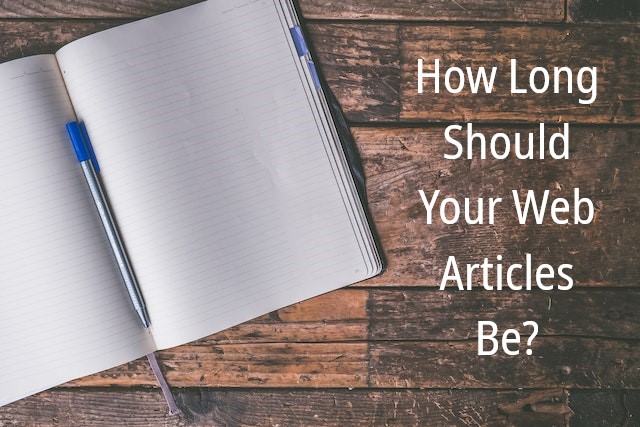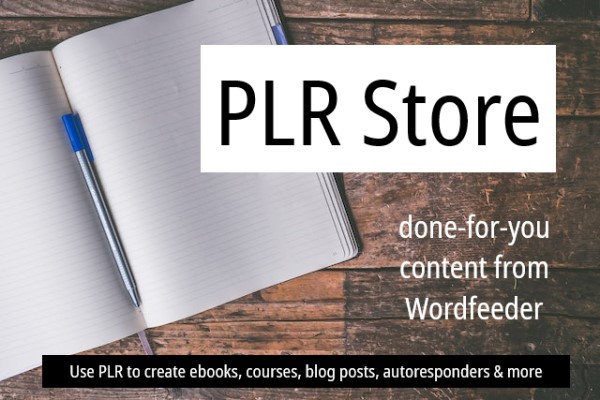How Long Should Your Web Articles Be?

I had a writer ask me recently how long a web article should be. On average, they're anywhere from 400 to 800 words, but that doesn't mean yours can't be as short as 300 or as long as 1,200.
Copywriters tend to think in word counts. They want to know how many words the client needs. If you're posting articles to a blog or an information site, then it's not so much how many words appear on the page, but whether you've explained one aspect of the topic or answered the question effectively.
Think in Web Pages and Article Sets, Not Word Counts
It's actually more beneficial to think of this as a search engine strategy. Search engines love links, and they love keywords. So change your approach, and instead think in "pages." How many keyword-optimized web pages can I publish on one topic?
Thus, if you wanted to get drive traffic for your gourmet coffee website, you could create a article series, or set of articles, on coffee... like this:
- Where did coffee drinking originate
- Where is coffee grown
- Types of coffee beans
- Methods for perking coffee
- How is coffee made
- Process for decaffeinating coffee
- Types and tastes of coffee
- Best coffee machines
As you can see, there's really a lot to address on the topic of coffee, and tons of people all over the world REALLY LOVE coffee. So we have plenty to work with here.
So... how many words should my article be, again?
In answering the question, "how long should my article be," you should throw away your worries about word count, and just develop the topic. So, maybe you'd end up with a 250-word article on types of coffee beans, an 800-word article on the history of coffee drinking, and so forth.
If you find that it doesn't take very many words to develop one portion of the copy, just add something like a list or a graphic or a chart to the page. Then put a link to the next article in the series. This keeps the reader moving along, and the search engines really like the links.
In the end, you really want to link all the articles together. So, somewhere on your site should be a set of hyperlinks that direct people to every article in the series. And then, at the bottom of each article there should be a NEXT link that goes to the next article in the series.
Anchor Linking Works, Too
Anchor links are under-utilized but I think they're making a comeback, considering the amount of people searching and reading from their phones.
Anchor links allow you to publish ALL the coffee articles on one page. This makes for one, VERY long scroll. But that doesn't matter, because we have anchor links. Add a set of hyperlinks containing the keyword titles of each article - basically, a menu of article titles. There should also be a "back to top" link after each article, in case the reader wants to once again peruse the list of articles in this series.
So, as you can see, it's not that important to have an exact word count when you're writing articles for the web. The idea is to publish an informational series.
This is what you'll find in every PLR content pack that we sell on Wordfeeder.
Shop our PLR store for done-for-you content across many niches, now!
Freelance Writers! Looking for Work? We'll Pay You to Write PLR
Requirements for PLR Writing Applicants:
- Articles must contain supporting facts
- Please reference all sourced material with link to articles or info on any books quoted
- Quotes and stats welcomed for health, wellness and psychology topics
- ONE draft only - we will edit the content as needed
- Timeliness is a must
Enter your name and email into the form below. You will receive an email requesting more information and work samples. If approved as a Wordfeeder writer, will email you as projects come up.
